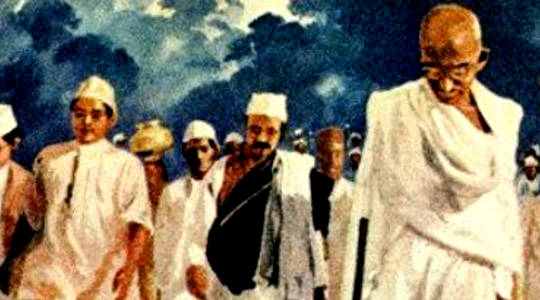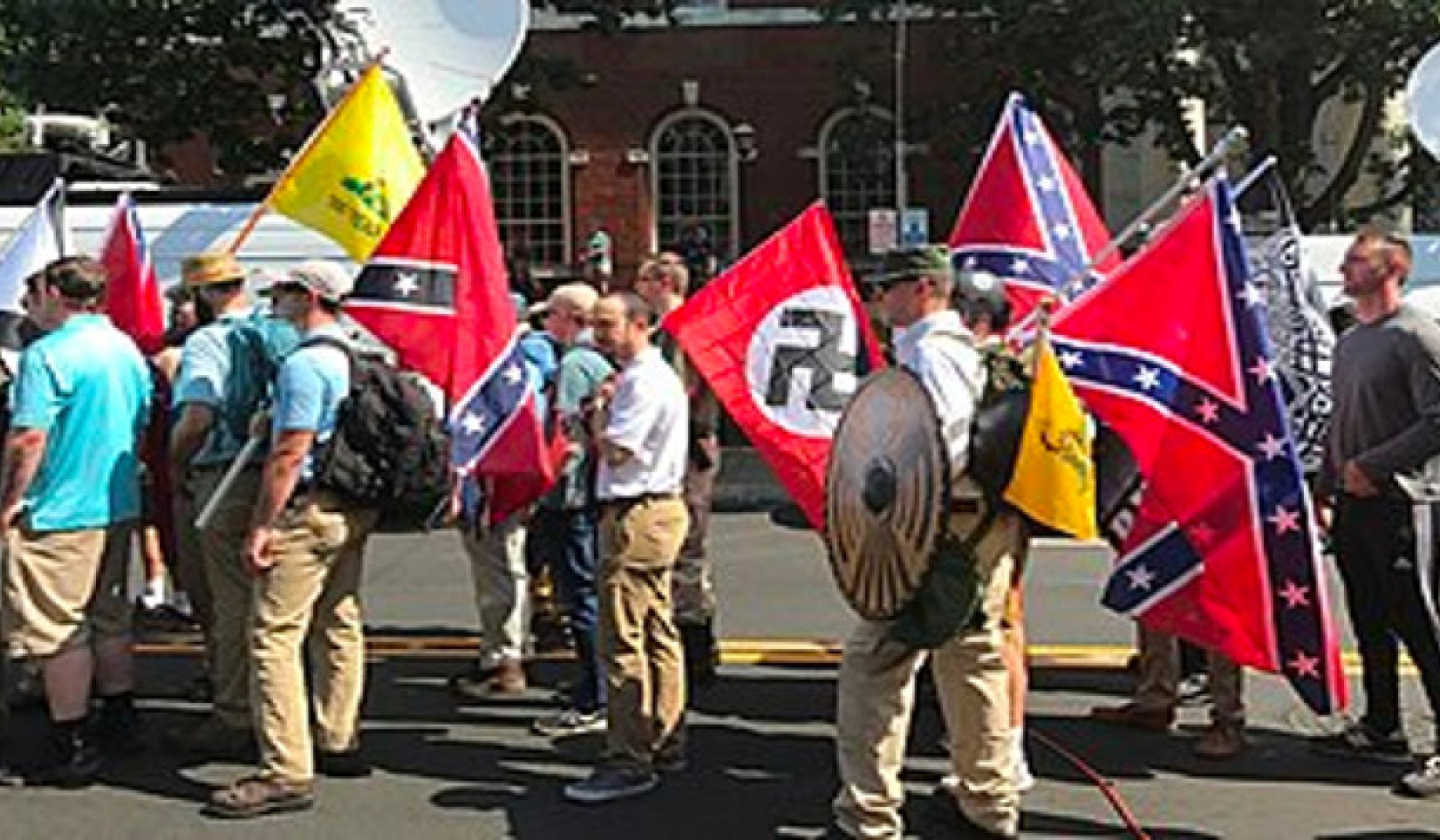
How to effect regime change without war was demonstrated by the nonviolent revolution in India led by Mahatma Gandhi. Gandhi pioneered satyagraha, the resistance of tyranny through mass nonviolent civil disobedience.
A band of young African Americans ended legal racial segregation in the United States using civil disobedience. Their weapons? Standing peacefully, with dignity, as they were spat upon, attacked by dogs, sprayed with water hoses, and clubbed by the police.
The Truth and Reconciliation trials in South Africa restored a level of honor and peace to the nation that it could not have achieved had it sought vengeance for the political crimes committed during its years of civil strife. That nation’s plan of attack? Forgiveness practiced on a wide scale. The power of a nation lies not in its physical might, but in the alignment of its people with love instead of fear.
Committed People Working for Positive Change
Positive change occurs when committed people work for it. Consider how the role of women changed when a relatively small number of determined women demanded it. The assumption that women were incapable of civic duties has been replaced with women’s right to vote, hold public office, and run for president or prime minister in a growing number of nations. Women are becoming architects, doctors, and engineers and joining many other traditionally male professions, a major change during my lifetime that opens opportunities to young women that others were once denied.
These more gentle revolutions depended upon committed leadership and willing followers. In each case, a fork in the road was taken that challenged the beliefs of many. A path was chosen that threatened the established order and caused many to feel fearful. Some were afraid that their vision of independence, integration, or liberation would fail; others feared it would succeed. What is most important is that it took few people to accomplish astonishing results, each instance adding to the impetus for a new culture of Oneness and paving the way for us.
The U.S. Role: E pluribus unum / Out of Many, One
 With regard to the organizing principle of Oneness, the United States has a unique history. E pluribus unum, “out of many, one,” is the motto of the United States adopted by the founding fathers. Consider its implications. It is a covenant that must extend to the people of all nations if it extends to any. Love of the boundaries that separate one country from another must not be placed above love of the world, home to all of us.
With regard to the organizing principle of Oneness, the United States has a unique history. E pluribus unum, “out of many, one,” is the motto of the United States adopted by the founding fathers. Consider its implications. It is a covenant that must extend to the people of all nations if it extends to any. Love of the boundaries that separate one country from another must not be placed above love of the world, home to all of us.
For nations, the claims of humanity must supersede the claims of national interest, for seeing interests as separate is the death knell to peace and security.
What can Americans do to see that the United States lives up to its motto? They can demand that the U.S. government return to being a leader in global nuclear disarmament. They can speak out for the U.S. military to be used, in concert with soldiers of other nations, to stand between the weak and those who would inflict physical harm upon them without causing more harm. They can find others who share their concerns about the present course and who also want to be agents of change.
When the United States is called upon to intervene in another nation, the American people can insist that the work of conflict resolution and reconstruction commence immediately. This means creating a context of Oneness that empowers local citizens to become self-governing. This capacity can be built into the Department of Defense, the Department of State, or perhaps in a new Department of Peace or Department of Oneness. By joining forces with others, the United States will show that it seeks holistic solutions and works cooperatively in the spirit of equality and the pursuit of justice for all.
Citizens can temporarily entrust their power to those who run the government day to day, but the people remain the source. Politicians may try to inject duality and fear into the process; it remains the responsibility of the citizens to curb such abuse. That is why our system depends on a well-educated, informed, and actively engaged citizenry.
The Bridge to Oneness Starts at the GrassRoots
Revolutions do not start at the top. Those in control will strive to cling to the old order. This gentle revolution is necessarily a grassroots movement, ready to spread from person to person and community to community. It depends on people like you and me.
We must not let the magnitude of the undertaking deter us. We begin by being diligent in following the Golden Rule. We can begin now to activate Oneness, creating peace right where we are by finding the interests we share in common with others and placing our focus there.
Together we commence this compassionate revolution, one step at a time, cautiously examining where we are. Our mistakes will be used to deter us — evidence that we are misguided, that Oneness exists only as a lofty ideal, a nice Sunday sermon, but dangerous beyond that. Just as the abolitionists of slavery continued to work tirelessly, even when the obstacles appeared insurmountable, we will hold fast, the colonists and pioneers of a new world, secure in the knowledge this is now our home.
Though we stand at the threshold of new possibility, the bridge between the worlds of Oneness and duality may seem too long for us to reach the other side. Where we presently stand is the place from which to begin. Using the understanding of the organizing principle of Oneness that we now have, we can create new institutional structures.
All that keeps Oneness from being the norm is the will of a unified people demanding that it be so. The old structures that are holding us back can be transformed. The time has come for us to have faith — and to leap. We stand at a portal to the New World promised from the beginning, a promise made to ourselves that only we can keep.
©2010 by Sylvia Clute. All rights reserved.
Reprinted with permission of the publisher,
Hampton Roads Publishing Co. Inc.
Dist. by Red Wheel/Weiser, Inc. www.redwheelweiser.com
Article Source
Beyond Vengeance, Beyond Duality: A Call for a Compassionate Revolution
by Sylvia Clute.
 Part social policy, part metaphysics, this is a book for all who are looking for a new model for individual and societal relationships. Sylvia Clute unfolds her argument for applying the philosophy of non-duality to not only our criminal justice system, but to all social relationships.
Part social policy, part metaphysics, this is a book for all who are looking for a new model for individual and societal relationships. Sylvia Clute unfolds her argument for applying the philosophy of non-duality to not only our criminal justice system, but to all social relationships.
Click here for more info or to order this book on Amazon.
About the Author
 Sylvia Clute is an attorney lecturer. She has graduate degrees from the Harvard Kennedy School of Government, Boston University of Law, and the University of California at Berkeley. After several years as a trial attorney, she became disillusioned with the legal system and began her search for a better way. She founded, led and served as an advisor to numerous community and statewide initiatives. A pioneer in legal reform, she spearheaded changes in Virginia's laws relating to women and children. Visit her website at www.sylviaclute.com/
Sylvia Clute is an attorney lecturer. She has graduate degrees from the Harvard Kennedy School of Government, Boston University of Law, and the University of California at Berkeley. After several years as a trial attorney, she became disillusioned with the legal system and began her search for a better way. She founded, led and served as an advisor to numerous community and statewide initiatives. A pioneer in legal reform, she spearheaded changes in Virginia's laws relating to women and children. Visit her website at www.sylviaclute.com/



























